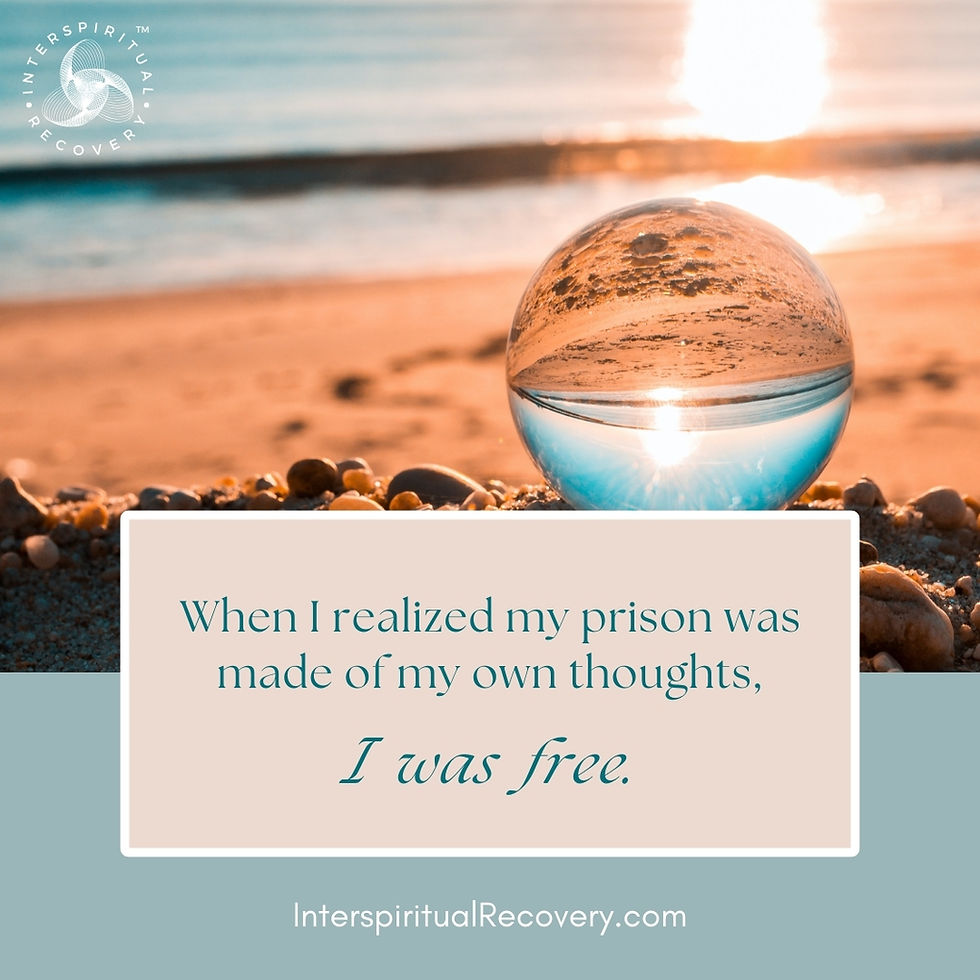I Realized - I Was Free
- Patrick Webster
- Jul 22, 2024
- 3 min read
Updated: Aug 8, 2024
Alcoholism and addiction are profound issues that affect individuals across the globe, regardless of their backgrounds or beliefs. Many who struggle with these challenges find solace and support in various spiritual practices and traditions.
I began my journey in recover with a sense of being closed off from the world around me...closed off from people that loved me and seemingly incapable of really connecting with people. I didn't feel, somehow, like a whole or complete person. The drink or the drug went way beyond getting me drunk or high...it made me feel like I thought I was supposed to feel. It provided a false sense of completeness to my being. Dr. Carl Jung described the alcoholic as having a "spiritual thirst for wholeness". I completely identify with that description.

I felt trapped in this alternate reality where everyone else was one way and I was another. Everyone else seemed to have a sense of being that I just didn't have and I couldn't get. One of the reasons alcohol and drugs work so well for an alcoholic or addict (until they don't anymore) is because they provide for us a lie that we're willing to believe. We take the drink. We feel the effect. Our alcoholic brain tells us, "Yes. This is how we're supposed to feel. Just keep doing this and we'll be alright." So, we keep doing it. But the walls don't go away, they get taller and thicker. So, we drink or we use more...the walls get taller and thicker...we drink and we use more. And all the while we're believing the lie - because we really need to.
As I progressed in my recovery I found some great spiritual teachers and I've been given some incredible lessons. When it finally hit me one day that those walls were just made of thoughts in my head, I was able to move toward freedom. Jealousy is a thought. Anger is a thought. Resentments are thoughts. Regret and shame are thoughts. Etc. Etc. What if there was a process to deal with these thoughts that seem to come between me and everything?
Meditation and mindfulness offer valuable tools for those of us grappling with addiction. These practices emphasize awareness, presence in the moment, and non-attachment – all of which can be instrumental in overcoming the grip of substance abuse. By cultivating a deeper understanding of the reality of our experience, we can find the strength and resilience needed to move beyond our pasts and find freedom beyond our old ways of thinking. We can cultivate new ideas based in love, compassion and understanding - for ourselves and others.
Both Eastern and Western spiritual traditions stress the importance of a sense of belonging and connection fostered by communities of common practice. This sense of community can provide crucial emotional support and a sense of purpose to those embarking on a process of recovery.
The deeply spiritual practices of prayer and/or meditation offer incredible opportunities to let go of our attachments to those old ideas, thoughts, and patterns in exchange for newer healthier ways of thinking and being. When those old ideas and thoughts fall away we realize the walls of our spiritual confinement, sense of aloneness, or sense of separation fall away as well.
Practicing or participating in a program of recovery within a group of like-minded people - or fellow travelers on a similar journey, has been crucial in realizing my new freedom. When the walls started to come down I was with a group of people, regularly, with whom I could begin to build the relationships that help sustain me today. Freedom from a drink or a drug, and freedom from my own self-defeating thoughts, has led to a freedom to connect with my fellows and find a deeper sense of belonging.
We can and do become spiritually whole.
When we recovery spiritually we recover physically.
Our bridge to recovery is our bridge to freedom.
%20(5).png)



Comments